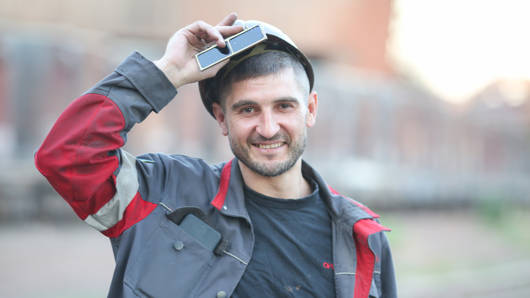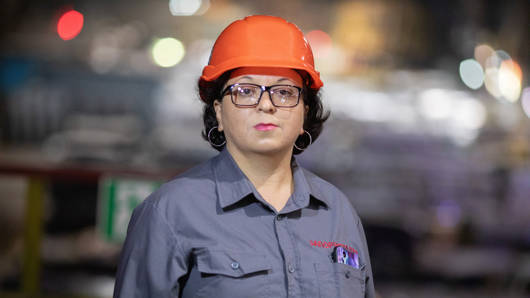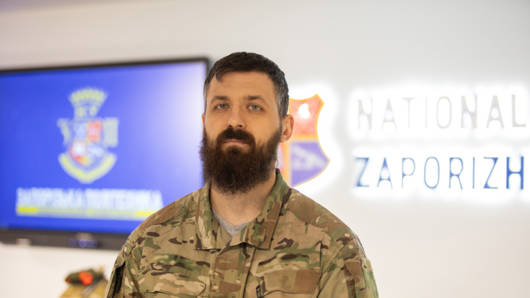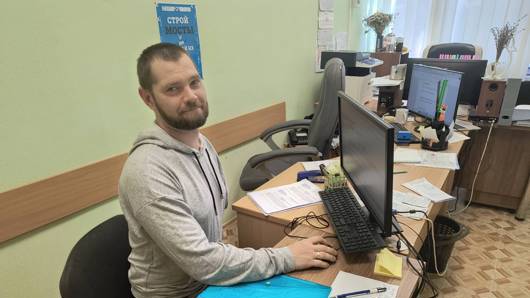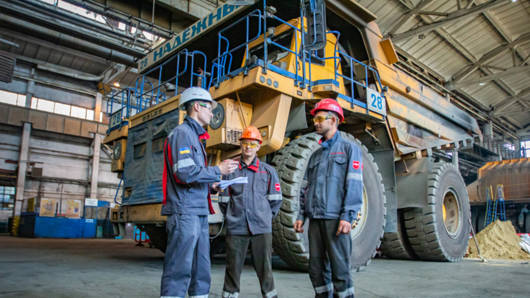A steelmaker from a military family, Yurii Arkusha knew for sure back in 2014 that the integrity and independence of Ukraine must be protected. He joined the army in early 2015 because he felt so in his heart, and the final impetus for this was the return of a good friend "on a shield" from the combat zone.
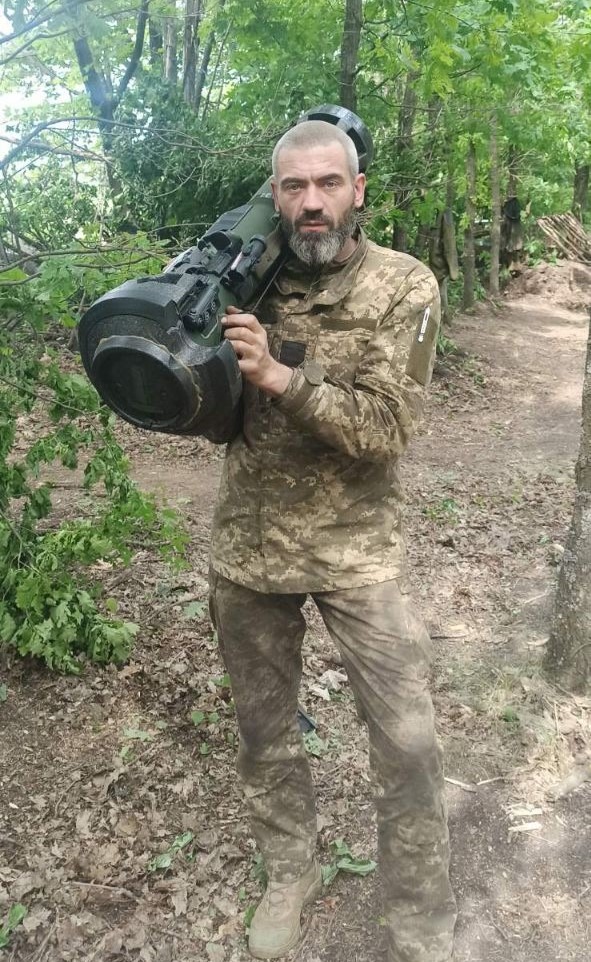
"On February 24, 2022, I worked at a blast furnace on the day shift. In the morning, we made two hot-metal tappings, and then the guys returned from the utility room. They said, 'Bad news, missiles are flying at us; it's war.' Right in the middle of the working day, I said goodbye to everyone in the shop, drove home to put on the uniform I had saved from the ATO, and went to the military recruitment office," recalls Yurii ARKUSHA, a veteran from Kamet-Steel and a holder of the Golden Cross.
Yurii Arkusha served in the 92nd brigade. He trained as a commander of a self-propelled artillery vehicle and gained combat experience in the airborne assault troops. From there, he earned the call sign “Gray.” Once, during heavy shelling of their positions, Yurii, who was 33 at the time, was buried alive in a dugout. His comrades dug him out and rescued him – shell-shocked and completely gray-haired.
In his civilian life, Yurii Arkusha always worked with metal – whether in the car-building or chemical industry. Fate allowed him to smelt hot metal at Kamet-Steel for just over three years – as a blast-furnace keeper. Then, for over two and a half years, he worked in a place where even metal could not always withstand the conditions.
On February 24, 2022, Yurii arrived at the 93rd brigade, and on February 25 he already headed the sabotage and reconnaissance unit. For more than half a year, together with his comrades, he performed this, as he himself says, specific work: at first, they conducted counter-sabotage activities in Dnipropetrovsk region, and in the combat zone they themselves worked as sabotage and reconnaissance groups.
“Let’s say a neighbouring unit “complains” that some enemy mortar position “offends” them too much. Our task is to find this position and simply destroy it. There was another way, the work is so specific. This is a one-way road, so you have to predict everything in advance, calculate every step in order to both complete the task and not lose soldiers. My greatest satisfaction is that during my time in command of such a group, none of the guys were killed, there were not even any wounded, although we worked quite efficiently.”
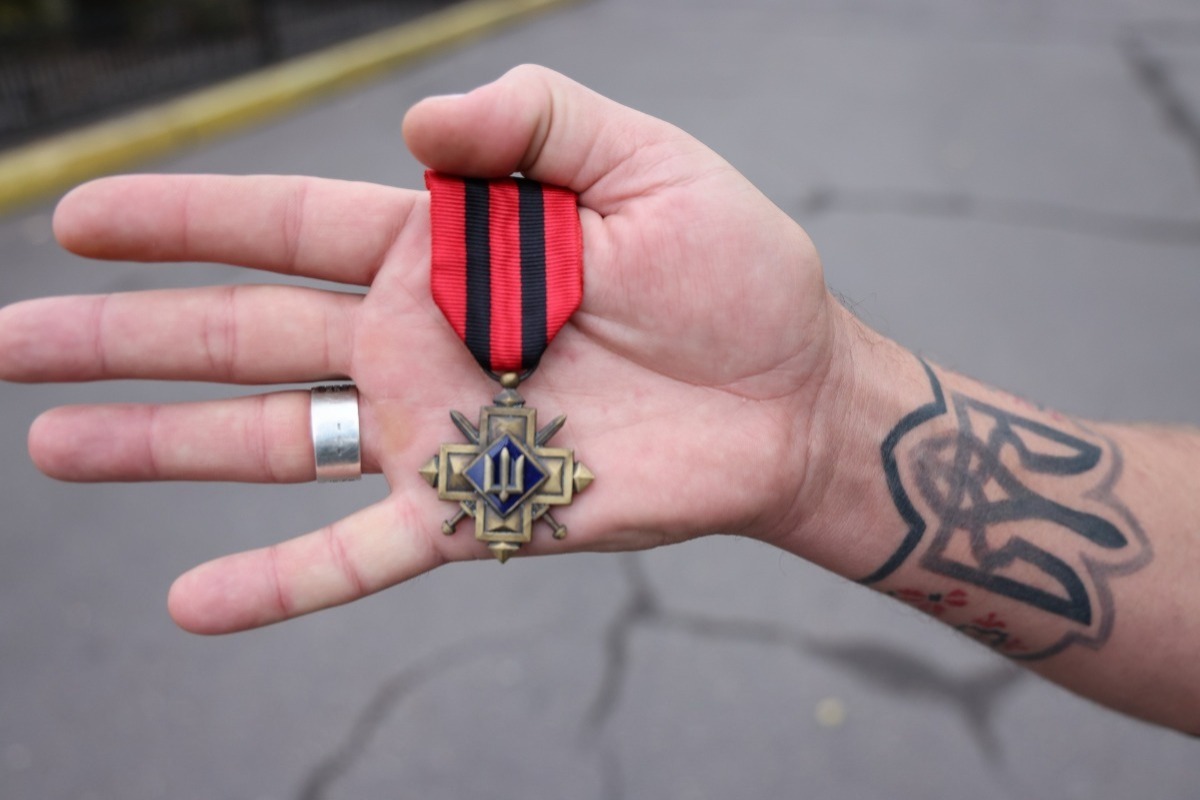
Then there was rifle work in a fire support company, the first number on an easel grenade launcher - an anti-personnel unit that also effectively targets unarmored and lightly armored vehicles. In the Izyum direction, a soldier from Kamet-Steel received the Golden Cross.
The Golden Cross is awarded to soldiers for special achievements in combat missions and personal courage. Yurii Arkusha recalls his experience with his characteristic wit, although he was not in the mood to laugh at that moment. He had to hold back a tank breakthrough using disposable grenade launchers, which are ineffective against tanks.
“So, I poked and prodded that tank until it couldn’t take it anymore, turned away, started maneuvering and ran straight into an anti-tank mine, its turret was blown away. I found myself under fierce fire, but I saved the neighbouring unit. I received the Golden Cross from General Zaluzhnyi. I was in the hospital after being wounded, on the verge of consciousness the whole time, but I am sure that I saw the commander next to me and heard his voice.”
For almost two and a half years of full-scale war, Yurii worked in the hottest spots in various directions as part of the Armed Forces of Ukraine. Reliable support during combat was provided to him by his friends, including the blast furnace workers, who used every opportunity to call, help with accoutrements, and bring such necessary news from the rear. Metinvest also remained among these friends - providing support, humanitarian assistance to the family, and material compensation after being wounded.
“Time loses its essence there, in some, very hot, cases you don’t even realize how many days have passed. Bakhmut was the most difficult period for me, it was there that I received three injuries, the last one quite severe, after which I was demobilized and returned to my hometown, to my family and to Kamet-Steel.”
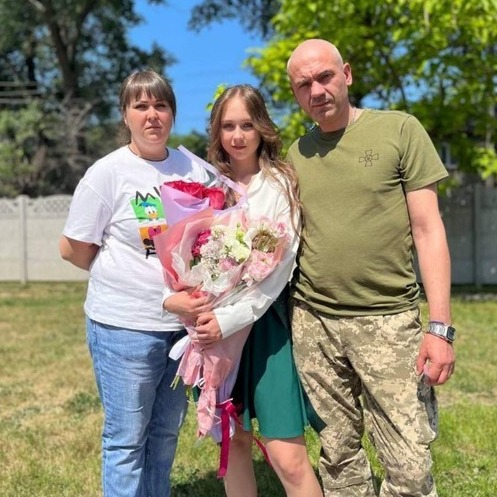
Yuri had to say goodbye to the blast furnace shop, although he has wonderful comrades there, civil comrades, as he calls them, but his health does not allow him to stand at the furnace again. Today he performs his work duties in the production preparation shop as a forwarder. The team is almost entirely female, and the attitude towards a colleague with combat experience is warm and responsive.
“For a soldier who has returned from combat positions, until he changes something in his own head, no one can change anything. It can be hard, sometimes even some words can throw me off balance, although I know for sure that in any team, I am a fairly positive person, there are no problems with me. I like this team, my colleagues also always meet me positively – they smile and, moreover, they always try to treat me with something. Without excessive curiosity, but sometimes, in a moment of respite, I share with them some funny memories. At least about the same coffee that I once wanted to drink to the point of madness, to feel the aroma and taste at the most inopportune moment for this. So, imagine: in the Izyum direction, under very dense tank fire, three restless people, lying on the ground, are making coffee. As a result, we got the desired tasty drink and… a good scolding from the company commander.”
But the biggest, truly steadfast, unshakable, and at the same time the warmest and most tender support for the warrior was his family – his wife Olga and his fifteen-year-old daughter. Minutes of communication via Starlink conveyed more than lengthy declarations. Now, after returning, they are always together.
“Family is exactly what a man should, simply obliged to protect. I don’t get into arguments with those who run away from service, I learned not to judge anyone. But I still answered one such person: “Friend, it turns out that I need your family more than you do.” I don’t know if he understood or not. And I noticed that some moments that used to be self-evident for me have now acquired some heightened meaning. Every hour of communication with my girls, every opportunity to pamper my daughter and wife is a joy. I want to fulfil all the promises, even the old ones. And communicate as much as possible. For example, fishing has become our joint family hobby. Resting by the campfire, time with my wife on the shore with a fishing rod, leisurely conversations – I wouldn’t trade that for anything else.”






